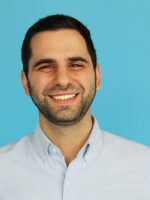It may sound like the plot of a movie: police find a young man dead with stab wounds. Tests quickly show he'd had Ebola.
Officials realize the suspects in the case, men in a local gang, may have picked up and spread Ebola across the slum. These men are reluctant to quarantine themselves and some – including a man nicknamed "Time Bomb" – cannot even be found.
This scenario actually unfolded in the West African nation of Liberia in 2015. And what followed was a truly unconventional effort by epidemiologists to stop a new Ebola outbreak.
This team of public health officials had to go to extraordinary lengths to keep the disease from spreading further — from halting a police investigation, to suggesting officials allow illicit drugs into a medical facility, to tracking down the elusive "Time Bomb."
It was all done in an effort to overcome what can be the biggest obstacle in public health: a severe lack of trust.
Hidden Brain is hosted by Shankar Vedantam and produced by Maggie Penman, Jennifer Schmidt and Renee Klahr. Our supervising producer is Tara Boyle. You can also follow us on Twitter @hiddenbrain, and listen for Hidden Brain stories each week on your local public radio station.
Copyright 2021 NPR. To see more, visit https://www.npr.org.










